The landmark flotation of The Hut Group has underlined Greater Manchester’s success as a platform for digital innovation and growth. But what makes the city-region such a successful home for tech unicorns and eCommerce giants?
In September 2020, The Hut Group (THG) achieved the highest value flotation of any British company since the UK government had sold the shares of Royal Mail in 2013.
Raising £1.88bn through the sale of shares on the London Stock Exchange, the flotation provided THG with a valuation of £5.4bn which has since risen to £7.3bn, with investors convinced that even bigger things lie ahead.
Whatever comes next for THG will be driven from its new headquarters at Manchester Airport, where the group is investing $1bn to develop two sites, including the UK’s biggest ever bespoke office project outside of London.
THG’s new landmark business campus, THQ, will span 280,000 sq ft and provide up to 10,000 jobs while ICON, its content creation studio, will be over 11.6 acres with more than 2,000 staff.
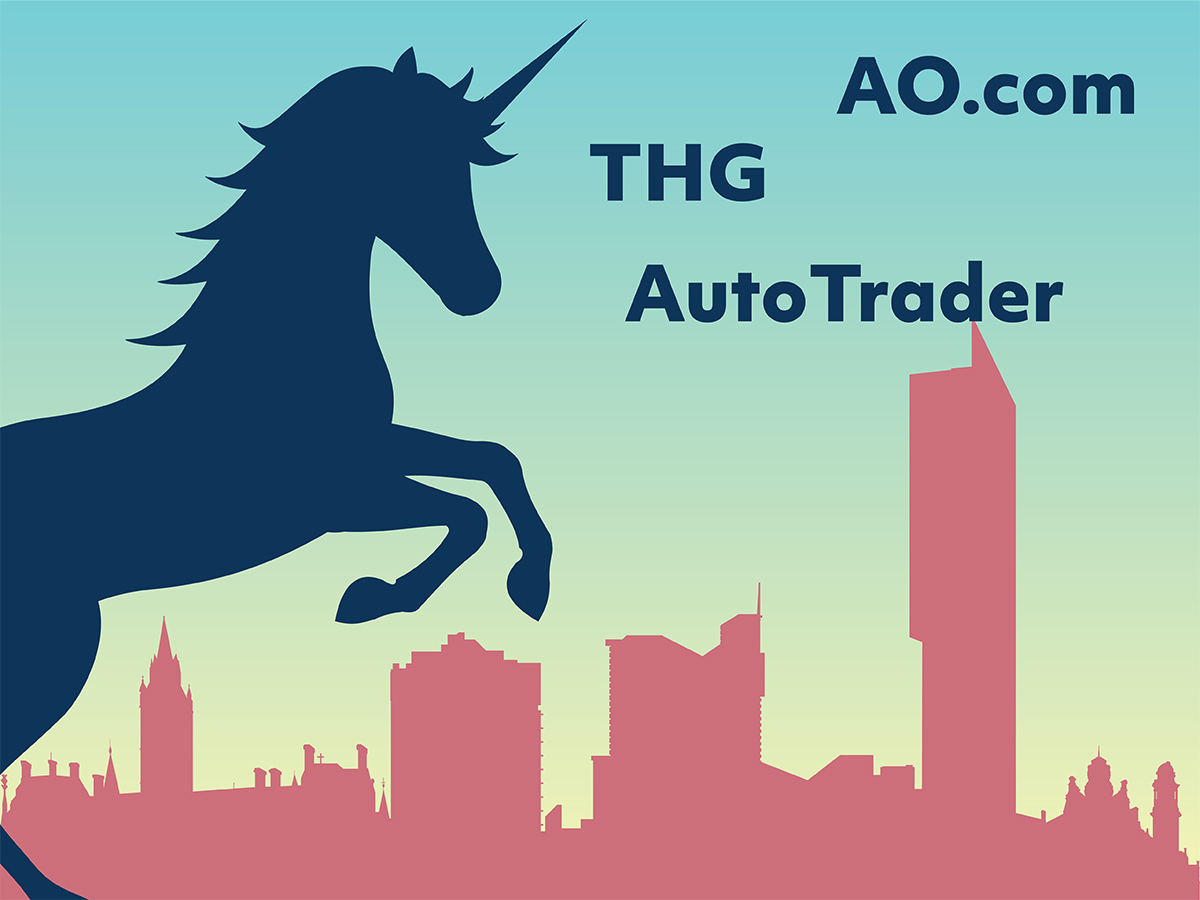
The Greater Manchester Digital Blueprint provided details of the fast-growing £5bn digital ecosystem in Greater Manchester and how the region is doing digital differently.
It builds on the sprawling network of digital and physical assets which make THG a shining example of end-to-end eCommerce success, with expertise, developed over 15 years harnessed to build, market, sell and deliver products to people across the world.
Turnover at the end of 2019 trading had hit more than £1.1bn and the company already employed 7,100 people. During the year ended 31 December 2019, more than 610 million visits were made to websites on the THG Ingenuity platform and more than 80 million units were dispatched using its infrastructure.
Matthew Moulding and John Gallemore founded The Hut Group in 2004 with a £500,000 investment and a hunch about the future potential popularity of online selling.
An accountant by trade, Moulding, THG’s Chief Executive and majority shareholder, had previously worked for John Caudwell’s Phones4U group, and suggested an eCommerce idea which was rejected, so took the opportunity to try it for himself.
The experiment started with the sale of entertainment products online but quickly pivoted to health and beauty product ranges, which appeared to appeal the burgeoning number of online shoppers, promised strong profit margins and could be cheaply delivered to the door.
Success in creating, buying and building brands favoured by digital consumers led THG to begin white labelling its eCommerce offer to major household name brands who needed help in taking their products online, including Zavvi, Tesco and ASDA.
A decade on, THG has every step in the eCommerce consumer journey covered via a range of divisions centred around THG Ingenuity its proprietary end-to-end eCommerce technology and operating platform.
The empire includes vast logistics warehouses, specialist digital marketing insight and expertise, digital content hubs where products become the stars of social media clips shared with millions, and even a portfolio of luxury hotel and leisure destinations where the world’s growing army of Instagram influencers can be tempted to support views of the latest beauty products.
Dotted across Greater Manchester, they include Hale Leisure Club, the Great John Street Hotel, King Street Townhouse and the iconic Art Deco 100 King Street, which was formerly home to the Midland Bank and Jamie’s Italian.
Amid concerns about logistics issues during the pandemic, THG did what any self-respecting eCommerce giant would do, sealing a deal with Singapore Airlines to launch its own airline, THG Air.
Matthew Moulding, CEO and Chairman, THG, said:
“Manchester is a great location for our HQ because of its world class infrastructure, access to talent and global supply chains. THG is both a significant business and employer in the UK, and particularly, in the North. Although we are currently rapidly building out global operations, we intend to significantly accelerate our rate of investment in the region, attracting and retaining the most innovative and inventive talent from across the globe.”
Prior to its flotation, THG had become known to tech investors as a unicorn, the term used in the venture capital industry to describe a privately-owned start–up company with a value of over $1 billion.
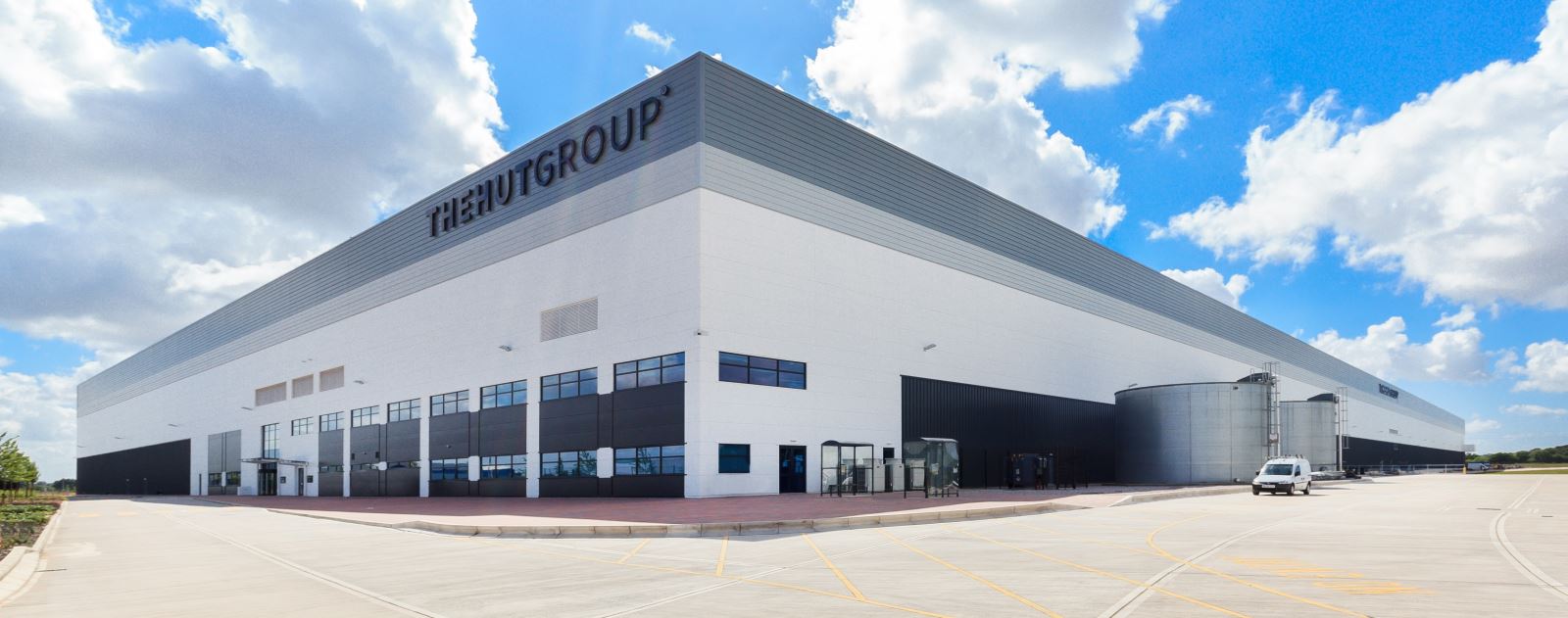
As the name suggests, unicorns are rare beasts, but Greater Manchester is home to no fewer than five. Living in perfect harmony alongside those unicorns are eCommerce giants including AutoTrader, Boohoo and Booking.com, and retailers including AO.com.
So just why has Greater Manchester become the land of unicorns and eCommerce giants?
According to a new report from London Tech Week and the UK Tech Cluster Group, North-West England is the “perfect breeding ground” for technology start-ups and scaleups because of its entrepreneurial climate, academic connections and growing investment activity.
The 12 Clusters of Tech: North West report details Greater Manchester’s prominent role in attracting inward investment and providing a platform for start-ups.
It says that the North West is attracting ever greater international attention, with companies like Amazon, Microsoft and Booking Holdings all building a presence, and singles out the homegrown success of businesses including THG.
Factors fuelling tech clusters in Greater Manchester and the North West include ‘tech talent and entrepreneurial spirit’, universities and the dedicated support available to tech companies, with particular specialisms, including Citylabs in Manchester, and GCHQ’s Manchester office.
The report states that the North West’s increasing confidence as a technology hotspot is reflected in growing investment activity too. According to Beauhurst, there were 389 announced and 502 unannounced tech investment deals in Greater Manchester alone between 2011 and 2020.
Of the 14 unicorns in the UK, two were founded in the North West and three have expanded here. Alongside THG, other Greater Manchester unicorns include AO.com, AutoTrader and Boohoo, while Crewe-based Radius Payment Solutions operates a technology centre in Manchester.
Interestingly, Greater Manchester’s eCommerce success includes a mix of relatively recent start-ups and more established organisations which have undergone successful digital transformation.

Notable among the companies to have undergone digital transformation is AutoTrader, which launched more than 40 years ago as a weekly print publication containing car sales advertising.
Headquartered in Tony Wilson Place, Manchester, AutoTrader evolved from an entrepreneurial print media business into one of the UK’s leading digital businesses.
Listed on the London Stock Exchange in 2015, AutoTrader has a market capitalisation of £5.85bn and employs around 850 people across offices in Manchester, London, High Wycombe and Dublin.
AutoTrader achieves 50.1m cross platform visits each month online and lists more than 470,000 cars each day.
Other factors underpinning Greater Manchester’s success arguably date back to the cotton trade.
Historically, textiles were central to Manchester’s industrial boom and the city was the prime location for weavers and cotton traders.
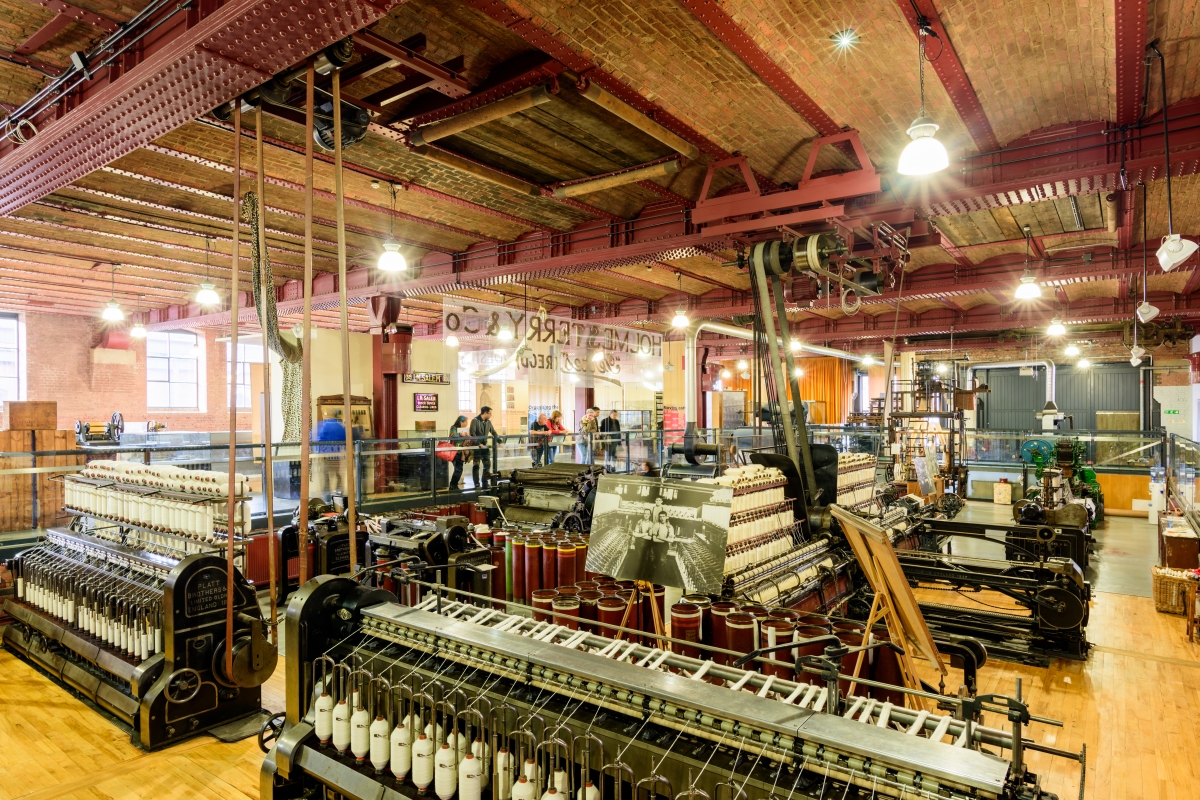
Today, Manchester, a mecca for cutting edge, innovative digital companies, has been referred to as a 21st Century Cottonopolis – a revival of its historic moniker. This follows the emergence of eCommerce and the success of its global brands including the unicorn Boohoo, Missguided, Lavish Alice and Pretty Little Thing.
In the space of 15 years, Boohoo has gone from a three-employee operation to a business with sales of £1.2bn and a 5,000-strong workforce.
As traditional retail has declined, Boohoo’s stock has risen and so far in 2021, Boohoo has acquired the eCommerce and digital assets of a portfolio of iconic High Street brands including Debenhams, Burton, Dorothy Perkins and Wallis.
Another eCommerce success story in Greater Manchester is AO.com, which began when founder and Chief Executive John Roberts accepted a £1 bet from a friend that he could change the way white goods are purchased via the internet.
Similar to THG, AO.com developed an end-to-end eCommerce offering – including logistics and digital content production – which attracted the interest of third–party retailers including Marks & Spencer, Argos and B&Q.
AO.com acquired its own logistics business and opened an in-house video production facility which produces video reviews of appliances.
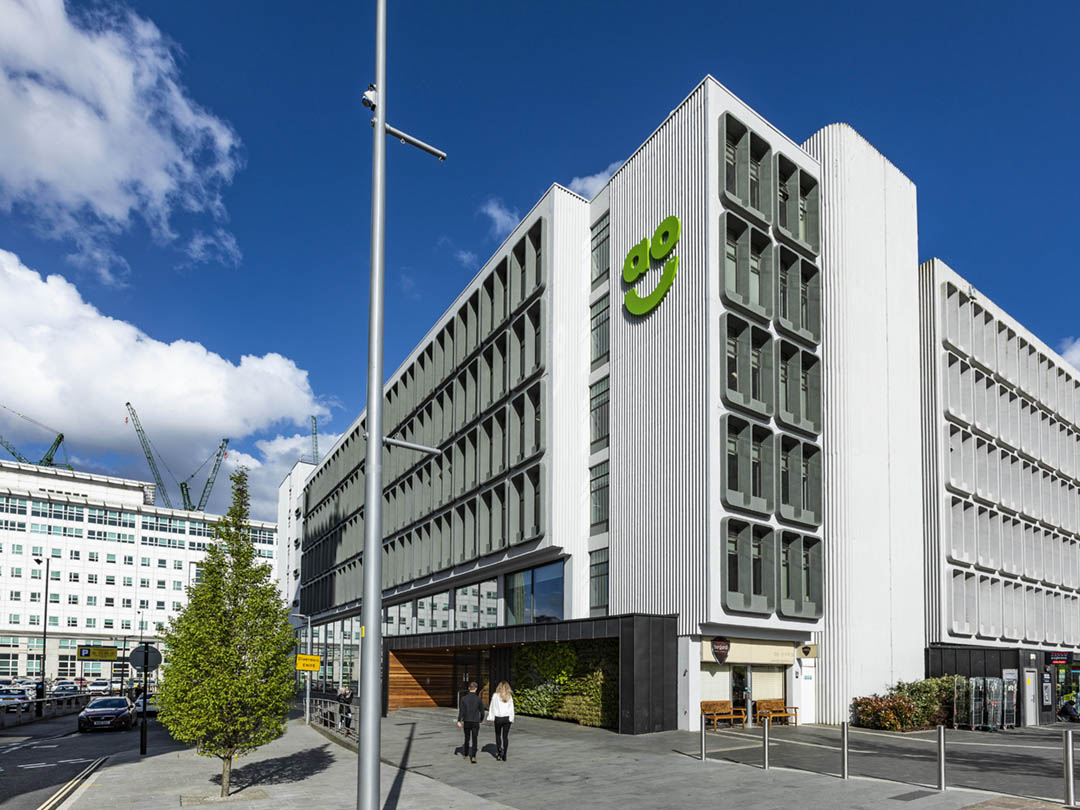
Today, listed AO World PLC has a market capitalisation of £1.48bn, employs over 3,000 people and makes 72,000 deliveries per week. It is headquartered in Bolton, Greater Manchester.
All of this activity supported Greater Manchester in cementing its reputation as the fastest-growing European tech city, with venture capital investment of £530m in 2019.
An increase of £153.22m on 2018 VC tech investment, it means that Greater Manchester has overtaken Cambridge as the UK’s most attractive city for tech investment outside London.
While the full impact of the coronavirus pandemic on global tech investment is not yet clear, Manchester tech investment continued to thrive in 2020, in part thanks to the successful IPO of THG, which demonstrated the calibre of tech companies across the region.
The strength of Greater Manchester’s digital and creative industries was cited in the Greater Manchester Local Industrial Strategy agreed with Government in 2019. This was reinforced with the publication of the Greater Manchester Economic Vision in 2021.
Lou Cordwell, Chair of Greater Manchester Local Enterprise Partnership, said:
“Greater Manchester’s rich history of digital innovation has provided the perfect platform for today’s tech and e-commerce success stories, attracting talent and investment and creating thousands of jobs.
“The Greater Manchester Economic Vision includes plans to further harness the opportunity that digital provides to deliver economic recovery and growth locally and on behalf of UK Plc.
“Supporting training, skills and innovation within emerging sectors of the digital economy will ensure that everyone can share the benefits that digital innovation can bring, while helping the UK achieve its ambitions for international trade.”
Through the Local Industrial Strategy, Greater Manchester aims to build on its position as a leading European digital city region, to maximise growing assets in cyber security and capitalise on the links between digital, creative and other industries in the city-region that feed innovation in broadcasting, content creation and media, as well as in eCommerce, FinTech and other new technologies.
MIDAS, the city’s dedicated investment promotion agency, has a strong track record of supporting and de-risking investment projects into Manchester.
Tim Newns, CEO of MIDAS, said:
“The pandemic has rapidly accelerated growth within the eCommerce and retail tech industry and with such a strong standing in this sector – as well as supporting industries and technologies including FinTech, service design and AI – Greater Manchester is the perfect location for ambitious firms.”
Being the largest creative, digital and tech hub outside of the capital, Manchester is home to a thriving community of businesses that sit side by side in the city’s digital and technology clusters, incubators and co working spaces, where they converge, collaborate and drive innovation.
New start-ups are joining that community all the time, while eCommerce businesses with an international presence understand the value of a Manchester base.
In January 2021, European travel giant Awaze reaffirmed its commitment to Greater Manchester with plans for 75 new jobs.
The continent’s leading managed vacation rentals and holiday resorts business has already recruited 25 new team members since starting operations at Dalton Place in October, but new roles in technology, revenue management, marketing, commercial and legal will see its city workforce swell to at least 100 by the end of next year.
Early in 2020, Greater Manchester launched the GM Digital Blueprint, setting out the next chapter in the city region’s ambition to be recognised as a world leading digital location. Building on existing strengths, Greater Manchester is now working to strengthen its digital talent pipeline and its world class digital infrastructure.
This can only make Greater Manchester more attractive to tech and eCommerce companies, with ambitious start-ups already following in the footsteps of THG, AutoTrader and Boohoo.
In November 2020, Beauhurst published an article revealing the Hottest Tech Companies in Manchester. It said the county of Greater Manchester is home to 1,468 high-growth private companies altogether, and over a third of these are technology and IP-based businesses.
Beauhurst said Manchester’s tech scene has also seen a general rise in the total value of fundraisings since 2014, with strong peaks of £400m in 2017 and £316m in 2019.
An increasing number of venture capital firms and angels with relevant domain expertise are now active in the area. And North West companies seem increasingly successful at engaging with investors in London, the USA, and beyond. Funding availability is one factor highlighted by Beauhurst.
And others are already following in the footsteps of the eCommerce giants and tech unicorns. Among Beauhurst’s ‘ones to watch’ is the eCommerce support business Shopblocks, which is effectively a one-stop shop for setting up an online store, and Clicksit, which has developed an app that allows users to track parcels, particularly when making returns to eCommerce companies.
Watch this space for the next generation of tech giants and eCommerce unicorns.
Why Manchester is the perfect location to build a digital business
For more than 250 years, Manchester has been creating and shaping the future.
Birthplace of the Industrial Revolution and the first stored program computer, Manchester continues to be a place where creativity and technology are jointly driving the next wave of innovation.
Manchester has seen phenomenal growth in the number of online retailers based in the city region and it is home to the UK’s greatest concentration of eCommerce start-ups.
The city region provides access to specialists in front and backend development, data analytics and marketing and PR and its central location and outstanding connectivity make it easy for eCommerce companies to ship goods nationally and globally and the city; making Manchester the ideal location for eCommerce companies to thrive.
As well as being home to a fast growing £5 billion digital ecosystem, Manchester is officially the UK’s Top Digital Tech City, with ambitions to become a top five European digital city and global influencer.
Being the largest creative, digital and technology hub outside of London, Manchester has a thriving community of more than 10,000 digital and tech businesses from start–ups and SMEs to global brands including Google, Microsoft, IBM and Cisco.
In addition, the city’s globally recognised strengths in broader sectors including financial services, advanced manufacturing and life sciences provide digital and technology companies with outstanding market opportunities.
Boasting excellent connectivity 30–40% lower operating costs than the capital and an unrivalled quality of life offer (in 2019 The Economist crowned it the Best UK City to Live) Manchester is the ideal city to attract top talent from across the UK and the world.
The UK has the most advanced eCommerce market in Europe. According to the Office for National Statistics, the country’s eCommerce revenue amounted to £688.4 billion in 2018 a sharp increase on the year prior.
Greater Manchester is firmly at the forefront of the UK industry having produced five homegrown eCommerce unicorns (companies that IPO at or above $1 billion) including Boohoo, The Hut Group, AO com, AutoTrader and On the Beach which have been joined by world leading eCommerce companies such as Amazon, Booking.com and MoneySuperMarket.
Manchester is unique in that it offers wide market access and demand, specific technology strengths to serve eCommerce companies, a highly developed infrastructure, a skilled workforce, and a diverse and thriving ecosystem of companies supplying into it.
Manchester’s entrepreneurial attitude is reflected by the success of its unicorns is also very welcoming of fast–growing eCommerce companies and suppliers into its established ecosystem It is also a great base for them to internationalise.
Manchester is at forefront of the UK eCommerce industry with over 3,000 eCommerce and related companies based in the city. This includes five homegrown eCommerce unicorns and the greatest concentration of eCommerce start-ups than anywhere else in the UK.
Manchester’s large eCommerce companies are actively looking to partner and work with innovative companies who can add value to their business and ultimately their customers.
Manchester is rich in specialist talent and skills that digital and technology businesses need to thrive, with 86 000 people currently employed in the city’s creative, digital and technology industry.
It also has one of the largest and most diverse student populations in Europe, allowing businesses to tap into an emerging labour force.
Of those studying in Greater Manchester, 14 725 are enrolled in technology related courses as well as industry led apprenticeships and training programmes providing businesses with access to a wealth of specialist skills.
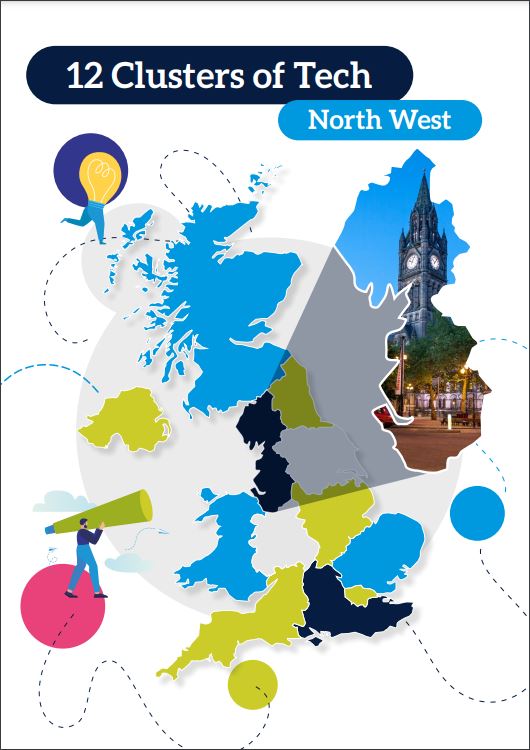
12 Clusters of Tech North West
Click here to access the 12 Clusters of Tech North West report by London Tech Week and the UK Tech Cluster Group, which includes a series of case studies.
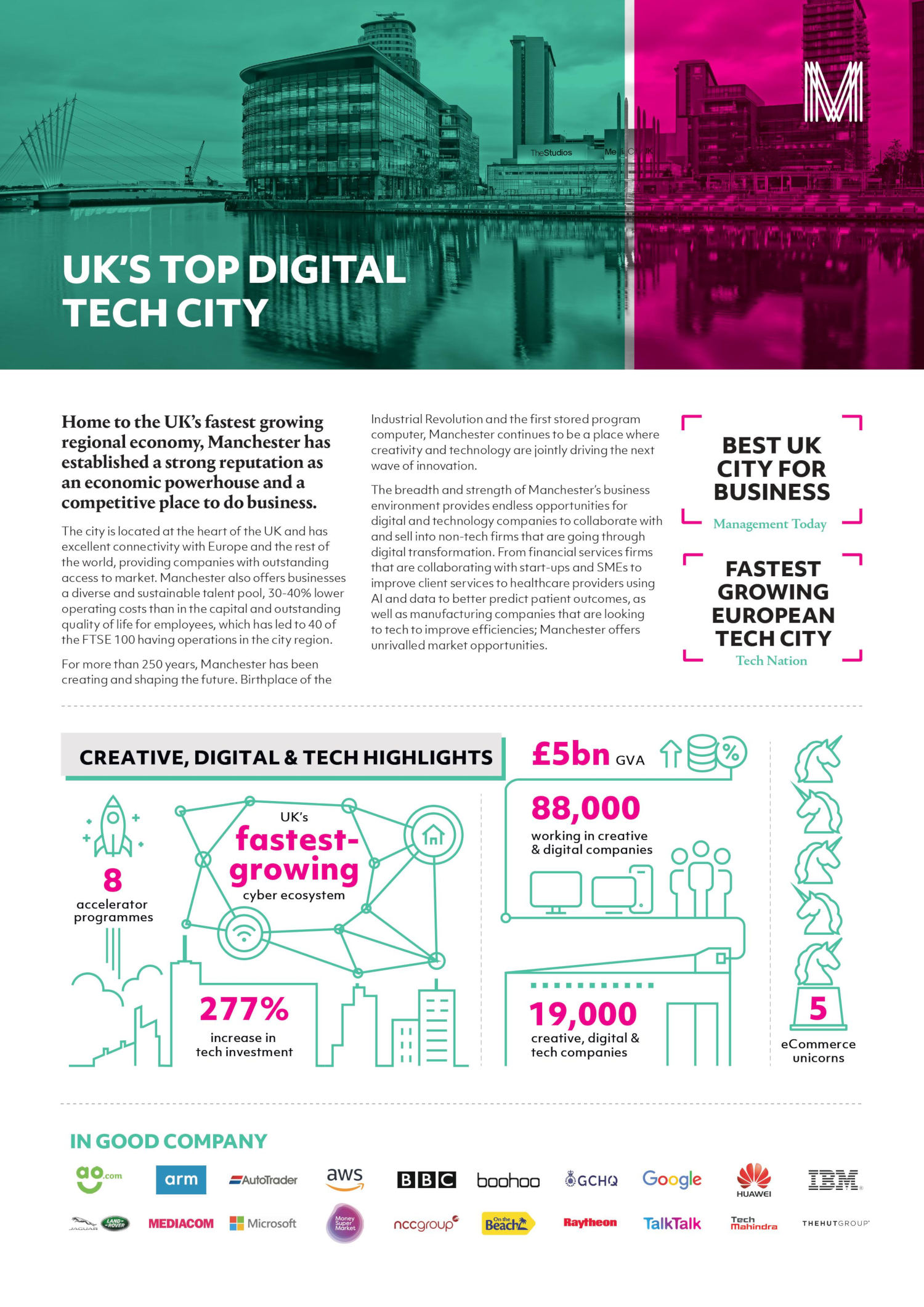
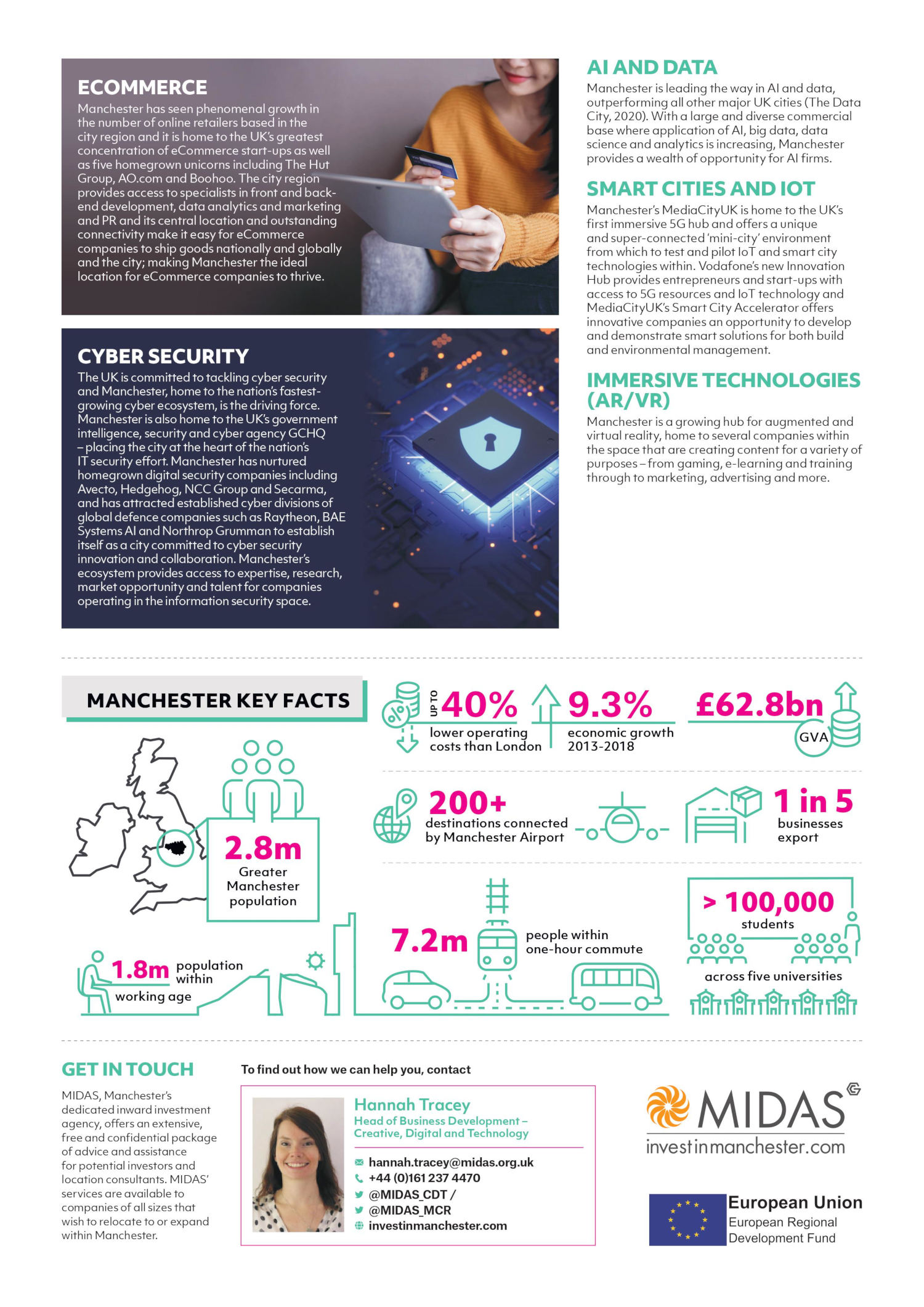
UK’s Top Digital City
Click here to find out more about how MIDAS can support you in locating a digital, tech and creative businesses in Greater Manchester.
